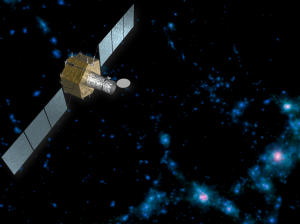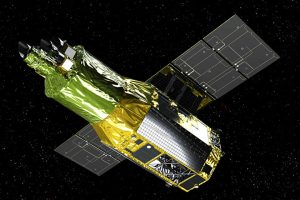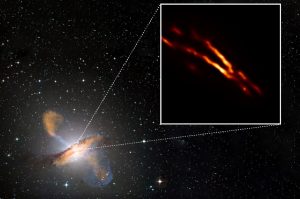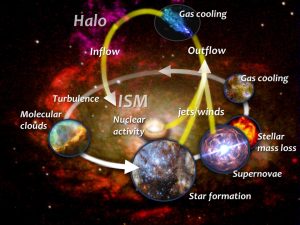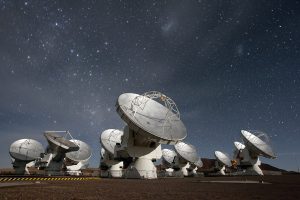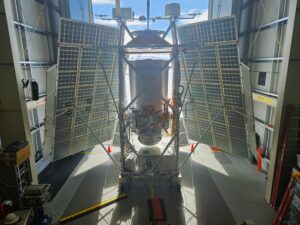The menu at the left shows EXOPLANETS missions (and instruments and demonstrators) with SRON involvement. For each a brief description is given of the science goals and technology involved, with links to further info. INTRO EXOPLANETS PROGRAMME Go to
Category: MISSIONS
Missions & instruments Astrophysics
The menu at the left shows ASTROPHYSICS missions (and instruments and demonstrators) with SRON involvement. For each a brief description is given of the science goals and technology involved, with links to further info. INTRO ASTROPHYSICS PROGRAMME Go to
HUBS
The Hot Universe Baryon Surveyor (HUBS) is a proposed X-ray space mission in China and is in the advanced stage of assessment at the China National Space Administration (CNSA). It is envisioned to be in operation around 2030. HUBS is designed to be a dedicated probe of tenuous hot gas in the large-scale structures or …
XRISM / Resolve
Artist impression of the XRISM satellite. Credit: JAXA. The SRON team behind the development of XRISM’s filter wheel, filters and calibration system. Filter wheel The X-ray Imaging and Spectroscopy Mission (XRISM) is a space telescope from the Japanese space agency JAXA. It was launched on September 7th 2023. XRISM replaces the Hitomi telescope which lost …
PLATO
PLATO will be the third medium class mission (M3) in ESA’s Cosmic Vision program. The space telescope will peer at the light of thousands of stars for several years to find tiny dips in intensity (~0.01%) which would reveal a planet passing in front. By measuring the depth of the transit and the duration between …
Missions & instruments
The menu at the left shows missions (and instruments and demonstrators) with SRON involvement. These are subdivided in ASTROPHYSICS, EXOPLANETS, and EARTH, following the programmatic lines of SRON. For each a brief description is given of the science goals and technology involved, with links to further info. INTRO ASTROPHYSICS PROGRAMME Go to INTRO EXOPLANETS PROGRAMME Go …
STO2
Stars and planets are born in molecular clouds that form and finally get disrupted again in the interstellar medium, the matter that exists in the space between the star systems in a galaxy. Astronomers still don’t fully understand how this life cycle works in our Milky Way. The Stratospheric Terahertz Observatory (STO2), a NASA balloon-borne …
ALMA
ALMA’s antenna’s Credit: ALMA (ESO/NAOJ/NRAO) ALMA’s antennas. Credit: ALMA (ESO/NAOJ/NRAO) The ALMA Band 5 reciever ALMA Band 9 receiver. Glycolaldehyde, a simple form of sugar, in the gas surrounding a young Sun-like star ALMA (Atacama Large Millimeter/submillimeter Array) is a ground-based radio observatory with the world’s largest collecting area in the millimeter and submillimeter regime. …

